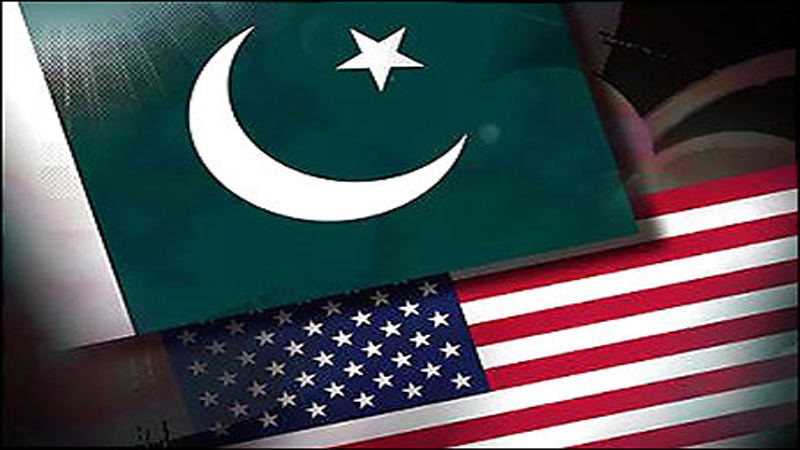The United States is considering granting Pakistan a 60-day period to address security concerns and mitigate potential travel restrictions, though certain limitations may still apply, according to recent reports from American media.
Contrary to initial speculations, a leaked draft proposal indicates that Pakistan will not be placed on the red list, which entails a complete travel ban. Diplomatic insiders in Washington attribute this to Pakistan’s renewed counterterrorism cooperation with the US, particularly in light of its role in aiding the capture of Mohammad Sharifullah, accused of orchestrating the 2021 Kabul airport attack that resulted in the deaths of 13 US service members and at least 170 Afghan civilians.
Despite this cooperation, Washington remains concerned about the growing threat of terrorism in Afghanistan. While some US officials recognize Pakistan as a key counterterrorism partner, they expect further measures to address security lapses.
Proposed Travel Restrictions
Instead of a complete ban, reports suggest Pakistan may be placed on an intermediate list, with sources differing on the specific classification.
According to Reuters, Pakistan could be included in a “yellow list” alongside 25 other nations, potentially facing a partial suspension of US visa issuance unless security cooperation improves within two months. Countries such as Belarus and Turkmenistan are reportedly on this list as well.
Meanwhile, The New York Times cites a draft proposal placing Pakistan on an “orange list” of 10 countries facing selective travel restrictions. Under this classification, business travelers might still obtain visas, but immigrant and tourist visa approvals could be curtailed. Additionally, travelers from these nations would be required to undergo mandatory in-person interviews before receiving US visas.
This proposed list includes Belarus, Eritrea, Haiti, Laos, Myanmar, Pakistan, Russia, Sierra Leone, South Sudan, and Turkmenistan.
On the stricter end, the US administration is finalizing a “red list” of 11 countries whose citizens would be entirely barred from entering the United States. This category includes Afghanistan, Bhutan, Cuba, Iran, Libya, North Korea, Somalia, Sudan, Syria, Venezuela, and Yemen.
Policy Considerations
Upon assuming office for a second term, the US president signed an executive order mandating a review of visa and immigration policies. The directive requires enhanced screening procedures for travelers from nations deemed security risks.
The State Department, in collaboration with the Justice and Homeland Security departments, is expected to submit a report to the White House in the coming days. The review process demands that scrutinized nations demonstrate their ability to provide accurate, verifiable information for US visa assessments, ensuring uniform screening and vetting standards.
Concerns Among American Muslims
The proposed restrictions have raised concerns among American Muslim communities, particularly as discussions coincided with the UN-designated International Day to Combat Islamophobia. Many fear the measures disproportionately target Muslim-majority nations under the pretext of security enhancements.
The policy uncertainty has already affected students and professionals. Columbia University’s International Students and Scholars Office issued a travel advisory urging students from affected countries, particularly Pakistan, to reconsider non-essential travel due to the risk of re-entry complications. Similarly, the Council on American-Islamic Relations (CAIR) has advised Pakistani nationals and others to delay travel until a final decision is reached.
On social media, growing anxiety is evident, with professionals, including physicians and IT specialists, cautioning peers to carry all necessary documentation while traveling. Concerns over heightened scrutiny at US airports and embassies continue to add to the unease.
Pakistan’s Diplomatic Response
Despite these concerns, Pakistan has a limited window to address security-related issues and potentially avert stricter restrictions. Diplomatic sources emphasize that Pakistan’s counterterrorism cooperation, particularly in the arrest of Mohammad Sharifullah, played a key role in preventing more severe measures.
However, the escalation of militant activity in Afghanistan remains a major factor shaping Washington’s regional policies. While Pakistan has managed to avoid the most stringent sanctions for now, the next two months will be crucial in determining whether it can fully escape restrictive measures.
With the US administration reviewing travel policies that could impact up to 43 countries, the political and humanitarian implications of these changes remain under discussion. For now, uncertainty looms for Pakistani nationals and American Muslims, who fear the long-term consequences of these evolving travel policies.


